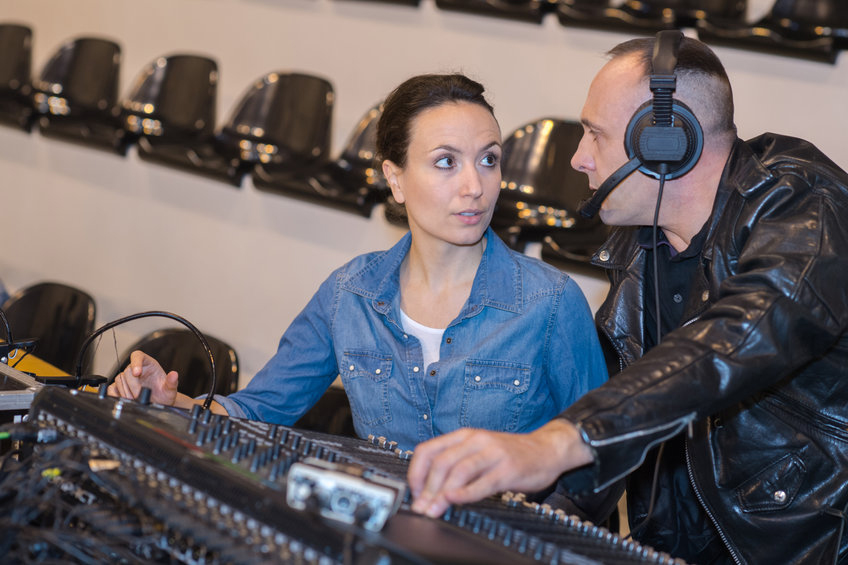Editor’s Note: Using the popular “Roundtable” article format, we recently asked members of the Signal To Noise Podcast Discord and Facebook community to weigh in on the question of “What’s the best advice you’ve ever been given?” As you can see, we received a wide range of great input. Enjoy.
Maury M Hutelmyer: Being overworked is not a badge of honor.
Wayne Pauley: Never (and I mean never) forget who signs your check.
Ed Hall: Close your eyes every so often and just listen to the mix.
Lucas Meyer: Be like a mum to the artists. If they’re happy and have everything they need, you get better inputs and will have an easier job.
Mick LoMauro: Everyone has something to teach you. Sometimes you get great insight. Sometimes you learn what not to do. Pay attention.
Steward Hassell: Never stop actively mixing, use your ears not your eyes, and walk the venue.
Hannah Goodine: Don’t let fear stop you.
Greg Clark: Know what Mix Minus is, and how to do it.
Peter Grills: Don’t be a d-ck. To anyone.
Brady Budman: Don’t overdo it! When you have a great mix, quit touching it except for when you have to.
Brian Latocha: Less is more, and be humble that you do what you love.
Parker Anderson: File prep, file prep, file prep. Read manuals and try to get your hands on gear you’re unfamiliar with before show day. If you’re dealing with a “throw and go” situation, forget the Waves inserts or master bus processing – we’ve all heard a mix that has an unintelligible vocal or similar massive issue that could have been solved with some basic high-pass filtering or channel strip EQ.
Katie Karch: Always walk, never run, on a show site. It makes the client think something is wrong. Doesn’t matter if something is actually wrong. Staying cool under pressure keeps everyone else calm, too.
Rick Carmona: Be cool with the local crew, especially now, lots of green people eager to learn. Yelling at someone won’t get your show set up any faster but could definitely make for a bad evening.
Todd Andrews: Calm down, nothing ever gets fixed by freaking out. Just assess the problem, do what you can to fix it and get ready for the next problem.
Ronald Salinas Basmayor: Always stay hungry for knowledge, experience, and patience.
Samantha Turner: Try to be present in each moment. It sounds very cliché but no matter how we may practice and prepare for the moments to come, it is only with opening new eyes in each moment that we can truly be present. Your time is always now, despite borrowing information from the past and present, we prepare our best to be in certain moments, but at that moment when it occurs, if we don’t trust our prep and knowledge and let go, we can never really participate fully in it and we get stuck living our present moments in the past or future.
I would say this is the best advice, tool, knowledge for life in general. I’ve realized it’s best to always be a student practicing to be present in as many moments as possible. I used to say my best performances left me having that feeling of not remembering most of it because I was so caught up in the moment. And those are all kinds of “performances” (in the most general sense of planned activity). They are the moments I seek in life in general.
Michael Maxson: Ask questions. Those who don’t will make more mistakes.
Curt Hare: Cut, don’t boost.
Mike Heath: Always stay humble and hungry to grow. The worst mistakes you can make are either to grow apathetic or to grow full of yourself. Check those attitudes and intentionally shift them over to, “But what can I do even better?” That’s been my mantra for a while now and it gets noticed.
Aram Piligian: You can tell who a person is by what they do with what they have.
Katrina Rice: One of the most helpful things I’ve been told is even when people who have no business telling you what to do give you advice, you should still listen to what they’re saying and see if there’s any value or truth in it. If some random audience member comes to front of house and says the system sounds too harsh, instead of ignoring or dismissing them, find out where they’re sitting and go see if they’re right – and sometimes they are and you have to fix it.
Just because someone’s not an audio pro or is new or has an off-putting personality doesn’t mean that what they say is necessarily wrong (or that it’s necessarily right; that’s the go-see-if-it’s-true part).
Chris Custer: In a world full of microphones, it is best practice not to talk out of turn.
Links:
Signal To Noise Podcast
STN Discord Server
STN Facebook Group
Roundtable On PSW















